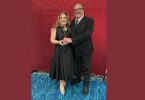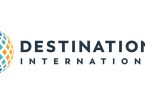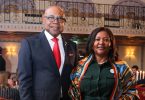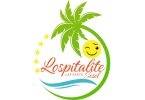SUMMIT, N.J., March 13, 2018 /PRNewswire/ — Seqirus, a leading innovator in influenza vaccines and pandemic preparedness, today welcomed calls from US Health Officials for greater efforts to be made to develop better and faster influenza vaccine technologies. The comments were made at a hearing conducted by the Energy and Commerce Subcommittee on Oversight and Investigations examining preparedness and response to seasonal influenza on Thursday 8 March 2018.1
“Seqirus has helped pioneer two of the most significant advancements in influenza vaccine technology since the introduction of egg-based manufacturing some 70 years ago,” said Brent MacGregor, Senior Vice-President Commercial Operations for Seqirus. “We believe these new technologies and others we are working on have the potential to transform influenza prevention as we know it today.”
In 2016, Seqirus introduced an enhanced influenza vaccine in the US which has been shown to boost the immune response in older adults.2 This season, the company has dramatically increased supply of its innovative cell-based influenza vaccine in the US.3 Testimony given at last week’s hearing highlighted the potential of these technologies, amongst others.1
Seqirus produces cell-based influenza vaccines at its state-of-the-art facility in North Carolina, US, which was built in partnership with the Biomedical Advanced Research and Development Authority (BARDA) to help combat influenza threats.4,5 Over the last two years, Seqirus has been able to make large-scale production of cell-based technology a commercial reality, quadrupling output of its seasonal cell-based influenza vaccine to more than 20 million doses this season.4
“With ongoing process innovation, we expect to continue the swift scale up of our cell-based vaccines for the US market and last week we announced our intention to also commercialise the technology in Europe,” said MacGregor. “The increased availability of this novel vaccine will contribute to real-world efforts to study the comparative effectiveness between egg and cell-based technologies from season to season.”
“The advances made in preparedness and response for both seasonal and pandemic influenza vaccine through our collaboration with BARDA is a fine example of a successful public and private partnership,” said MacGregor. “Several collaborative projects underscore the sustained priority that both Seqirus and BARDA place on combatting influenza.”
Seqirus also welcomed calls for continued investment in the development of a universal influenza vaccine – a one-shot influenza vaccine that provides high levels of life-long protection against any type of influenza virus, but says that optimizing novel technologies that are currently available may ultimately prove to be a faster path to providing broader access to more effective influenza vaccines.
“The pursuit of a universal vaccine – the holy grail – should absolutely continue at pace, but the science is extremely challenging and the availability of a licensed vaccine produced at global scale is still years away,” said MacGregor. “In the meantime, there are influenza vaccine technologies available today that may have the potential to reduce deaths and severe illness, and we must continue to enhance those and to also drive greater uptake across all age groups.”
Seqirus has a number of research and development programs in place to optimize its adjuvant and cell-based technologies to potentially improve protection against influenza and to drive even greater production output. The company also has early stage collaborations that are exploring other transformational approaches including universal projects, synthetic technology and new delivery devices.
About Seqirus
GOT NEWS? click here
Google News, Bing News, Yahoo News, 200+ publications
Seqirus is part of CSL Limited (ASX:CSL), headquartered in Melbourne, Australia. The CSL Group of companies employs more than 20,000 people with operations in more than 60 countries.
Seqirus was established on July 31, 2015 following CSL’s acquisition of the Novartis influenza vaccines business and its subsequent integration with bioCSL. As one of the largest influenza companies in the world, Seqirus is a major contributor to the prevention of influenza globally and a transcontinental partner in pandemic preparedness.
Seqirus operates state-of-the-art production facilities in the US, the UK and Australia, and manufactures influenza vaccines using both egg-based and cell-based technologies, as well as a proprietary adjuvant. It has leading R&D capabilities, a broad portfolio of differentiated products and a commercial presence in more than 20 countries.
Media Contact
Dave Minella
+1 (919) 802-7641
References
- https://energycommerce.house.gov/hearings/examining-u-s-public-health-preparedness-response-efforts-seasonal-influenza/
- Frey SE, et al. Comparison of the safety and immunogenicity of an MF59®-adjuvanted with a non-adjuvanted seasonal influenza vaccine in elderly subjects. Vaccine 2014. https://www.ncbi.nlm.nih.gov/m/pubmed/25045825/
- http://www.seqirus-us.com/media-room/press-releases/Seqirus-announces-next-major-advancement-in-cell-based-influenza-vaccine-technology.htm
- http://www.seqirus-us.com/media-room/press-releases/Seqirus-announces-major-advances-in-pandemic-preparedness.htm
- US Department of Health & Human Services. A milestone in protection from influenza. US Department of Health and Human Services website. http://www.hhs.gov/news/press/2014pres/06/20140617a.html.
- This project has been funded in whole or in part with Federal funds from the Office of the Assistant Secretary for Preparedness and Response, Biomedical Advanced Research and Development Authority, under Contract No. HHSO100200900101C.
![]() View original content with multimedia:http://www.prnewswire.com/news-releases/seqirus-answers-the-call-for-better-and-faster-influenza-vaccine-technologies-300613210.html
View original content with multimedia:http://www.prnewswire.com/news-releases/seqirus-answers-the-call-for-better-and-faster-influenza-vaccine-technologies-300613210.html
SOURCE Seqirus






